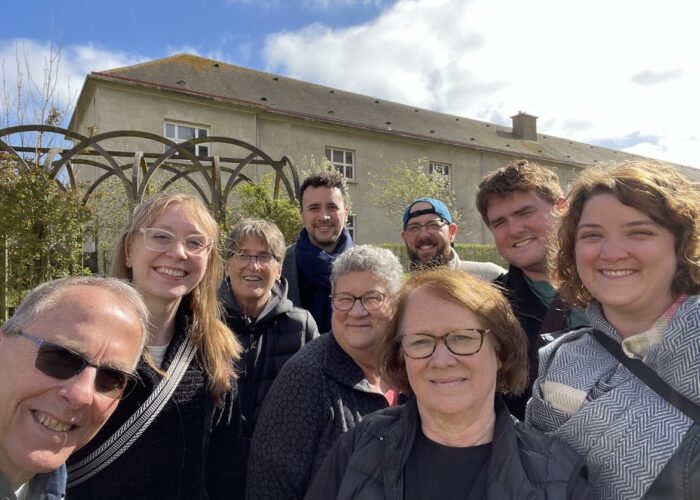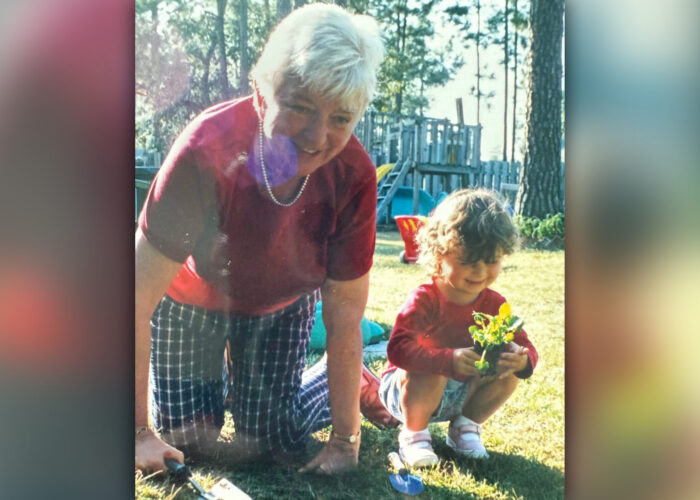NEWTON, Kansas (Mennonite Mission Network) – In
my two years at Mennonite Mission Network, I’ve written seven obituaries for
mission workers who served with the organization, or one of its predecessor
agencies. Stating that writing obituaries is not my favorite part of this job
is neither controversial nor surprising. Yet, putting together obituaries is a necessity
for Mission Network writers. We cover writing “beats,” locations around the
world that often have a long and complex history of North American mission
workers coming into their communities. Some were invited. Many were not. While our
organization’s practice of “mission” has and continues to change, we relate
with and celebrate vibrant churches around the world that were started through methods
and practices we would not use today.
This history means that writing obituaries can
be difficult. Yet, through my practice of interviews, researching, and archive
skulking, I’ve come away with a few understandings that I have grown to
appreciate through writing mission worker obits.
Lives go by quickly
I’ve had the fortune of writing obits for people
who are older: septuagenarians and up. Yet, summarizing a person’s life to focus
on their time of service means that I need to distill 80 years into about 500
words, which takes an adult roughly two minutes to read. It’s this tremendous ratio
of time lived versus time read that makes me wonder how my next year of life
will be condensed into the one and a half seconds that will represent it
in my own obituary someday. What will be mentioned? What will be passed over?
Word count aside, as a writer I don’t set
out to condense a decade of a person’s life into a single sentence or two.
Instead, it often happens due to a lack of details. Many of the people that I ask
for quotes and information are older as well, and simply don’t remember what the
individual did 40-odd years ago. Eventually, that information was lost through
time.
Details are ephemeral…
I have no doubt that future historians will
have a field day with the abundance of geo-tagged photos and Twitter posts
chronicling our locations, ad preferences and minute-by-minute thoughts. However,
piecing together obituaries has helped me realize that the details of our lives
can disappear quickly. By nature, an obituary has the disadvantage of the best
source of information entirely unavailable for earthly comment. Spouses may or
may not remember dates or locations. Children or extended family may not
either. Sometimes, the obituary subject gives me, the writer, the greatest gift
of all: published memoirs. Yet even those are not always factually accurate. Archives
may have 20 vibrant Kodachrome photos of a mission worker, or a single, blurry headshot
scanned from the back of a yellowed prayer card. While there may have been
dozens of better photos taken, it was the prayer card portrait that survived, and
it was the prayer card portrait that was catalogued. Given enough time, all
specifics erode, like a river stone that becomes smoother and less discernable as
the water rolls atop it.
…but relationships survive.
One of my favorite parts of writing
obituaries is talking with not just family members and friends of the mission
worker, but with people whose lives and spiritual journeys were changed through
them. That means talking to coworkers, congregation members and people in the
communities where these workers lived. Some people I interview never met the individual
in question but are connected to a church or organization with which the
mission worker was involved. Many of these churches and organizations now have
local leadership. The North American mission worker retired, but the
relationships formed, and the lives touched continued to create their own
legacies.
Singer-songwriter Lucy Dacus
described a relationship as two people choosing to be each other’s historians, and
I firmly believe that responsibility extends beyond couples or spouses. In a
very real sense, I am a historian for my friends, my coworkers and the people
with whom I share life. Being privy to someone’s life journey is an honor and
sharing about that journey is a great responsibility. As a writer who is given many
stories to share, I think about that a lot. Sometimes I feel like I’ve given a
story justice. Other times I fear I came up short. Yet, obituaries have taught me
not to shirk the responsibility, nor take the honor for granted. So, when the
time comes that some poor, hapless writer comes to me for a quote on someone
recently departed, I, their historian, will be ready.





